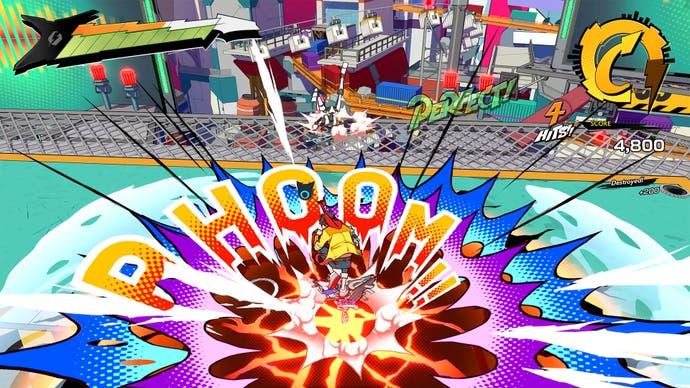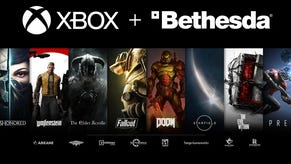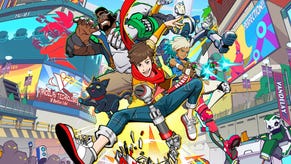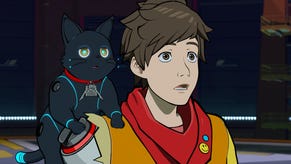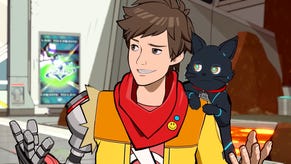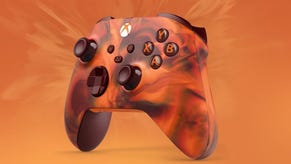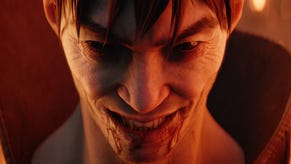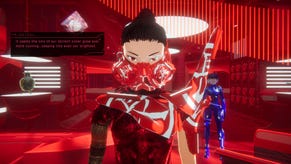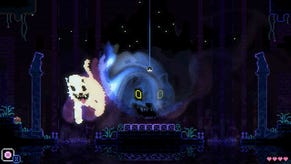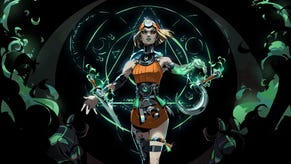Hi-Fi Rush review - an unrepentant riot of rhythm-action
Up-toon funk.
I've been listening to a lot of The Joy Formidable recently, namely the Welsh band's 2008 hit Whirring. "Turn the dial on my words, I can feel they fall short," sings frontwoman Rhiannon Bryan before the band takes over and the guitars escalate to a rapturous peak. The song is, perhaps, about not being able to express emotions in words, the music taking over all feeling for an almost seven minute long crescendo. And that's how I feel about Hi-Fi Rush as I struggle to put my enjoyment into words.
Whirring is one of a handful of licensed tracks used in the game, accompanying a late-game climactic level. Without spoiling too much, it's the kind of level where you're approaching the big bad boss and all your friends are with you and the music hits this euphoric high at just the right moment. It proves the power of licensed music, whether that's a mournful Linda Ronstadt song in the midst of a post-apocalypse, or a young hero with a metal guitar smacking some robots.
Hi-Fi Rush thrives on these sorts of moments. Everything fizzes and bops in time, enemies pop in a whiz and a bang, and the beat pulses through your fingertips.
Tango Gameworks kept Hi-Fi Rush as a complete surprise until its announcement at last week's Xbox Developer_Direct. One look at the trailer was enough to have me running to the console to play it immediately - I'm a sucker for a music game. The visuals of Hi-Fi Rush may evoke Sunset Overdrive for many, but really the game is a silly cartoon Devil May Cry set to music that answers the question: what if Iron Man's heart was an iPod?
It's hardly the first time that rhythm has been applied to gameplay, but it still comes with risks. In practice, the addition of rhythm can sometimes be either too heavily structured, restraining you, or too loose and lacking impact.
Hi-Fi Rush is bang on. Players can move and jump freely, but every step is in time to the beat, as is every attack, dodge, and parry. Where other character action games have a sort of rhythmic flow to combat, Hi-Fi Rush makes that explicit. Light attacks take one beat and heavy attacks take two, while a pause between attacks becomes a launching combo and beat hits reward correct timing with powerful strikes. Then there are special attacks that expend the reverb gauge: hit, hit, smack before launching into a diving guitar thrash that feels oh so good. Gameplay becomes music; attacks become crotchets and minims; combos are musical phrases.
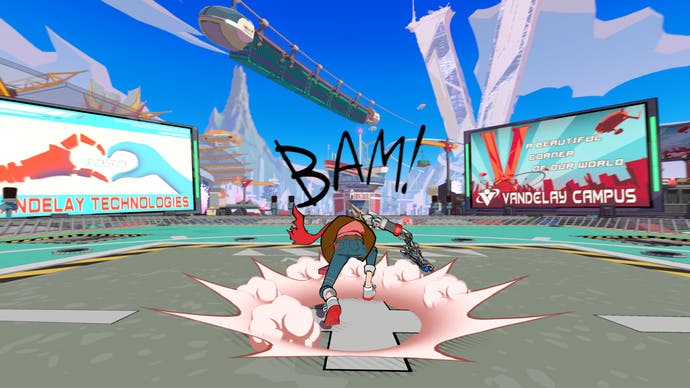
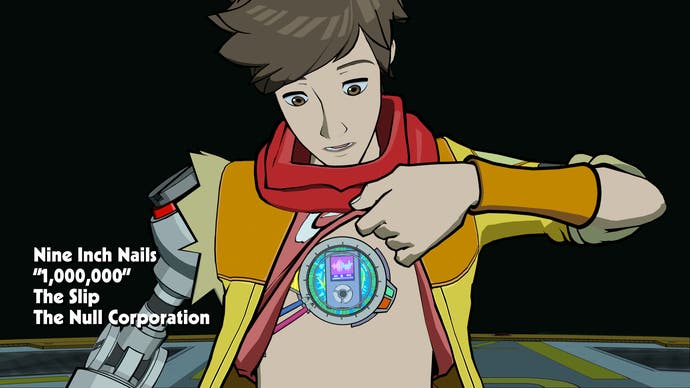
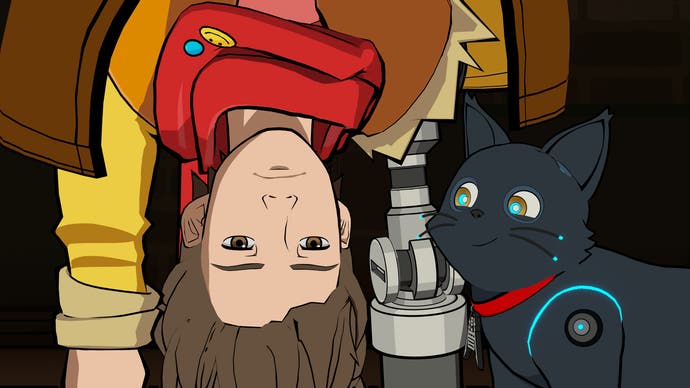
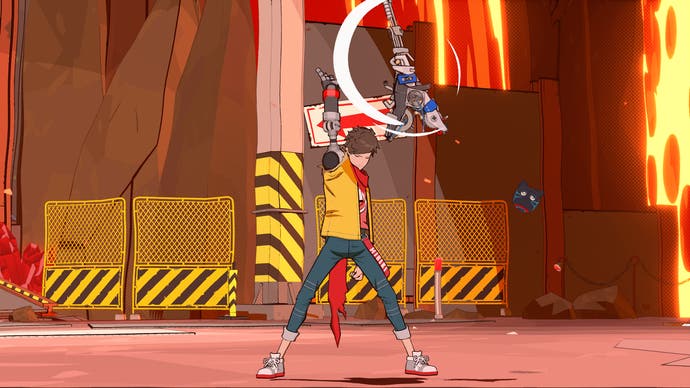
And so I sit at the TV. The toes twitch. The head bobs. The brow furrows. The eyes and ears focus. The shoulders hunch. The thumbs tap tap pause tap tap pause. There's no other way to play.
Along with its relentless rhythm, Hi-Fi Rush really excels in its accessibility. Bonus points and damage are awarded when buttons are tapped exactly on the beat, but even if players are slightly off the animation still occurs in rhythm. Its immediacy is gratifying, but levels gradually add in new moves for an ensemble that's tough to master. Further options include an on-screen metronome, colour-blind indicators, and customisation of your pulsing cat companion.
All of this is delivered with exuberant feedback. Every action is accompanied by a guitar lick, a cheer, a hand clap, or a shout. It's like I'm improvising over the soundtrack, alongside cartoon thuds and booms and explosive effects that had me non-stop grinning. Get it right and a bright perfect pops up in the score.
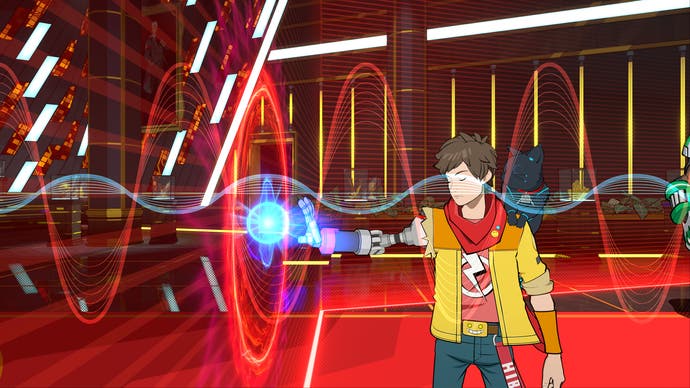
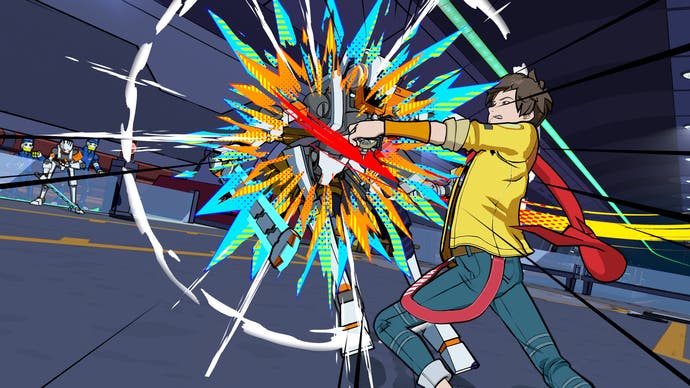
I did find later bosses to be a touch frustrating. Bosses aren't so much about learning attack patterns but rhythmic patterns that require perfect parrying through call and response, testing memory and feel for syncopation. In later levels I found myself surrounded by enemies, the screen a riot of colour, no way to button bash, and left overwhelmed. That's where those head nods came in as I tap tap tap tap...
But when all this lines up with the music, it just feels awesome. I've never felt quite so empowered in an action game, like a musical superhuman. Once the rhythm of attacks, parries and dodges clicked into place, I was able to not only kick ass effectively but preempt enemy hits and think ahead in bar lines. Listen carefully and you can sense in the music what's about to happen next. The innate musicality of combat is only enhanced by rhythmic structure, elevating typical gameplay to a whole other level. I felt like I wasn't just controlling a character beating up baddies but I was subsumed in the music.
That's why that Joy Formidable moment hit such a high for me. But other licensed tracks from the likes of Nine Inch Nails, The Black Keys, and The Prodigy hit similar beats, typically used during boss fights. And there are suitably playful choices too: battling to Wolfgang Gartner's remix of Beethoven's Fifth is amusing, but also immediately readable. The original tracks hit a similar vibe, featuring strong, clear beats to battle to, plus enough catchy guitar licks to add character and not get repetitive over the course of a single level. But what really makes Hi-Fi Rush sing is the anarchic combination of high octane rock and the slick controlled chaos of combat.
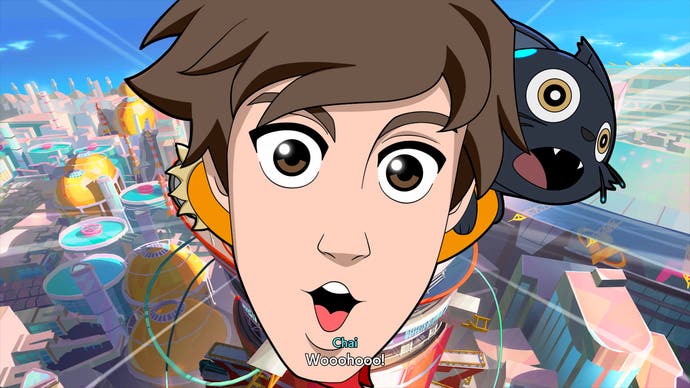
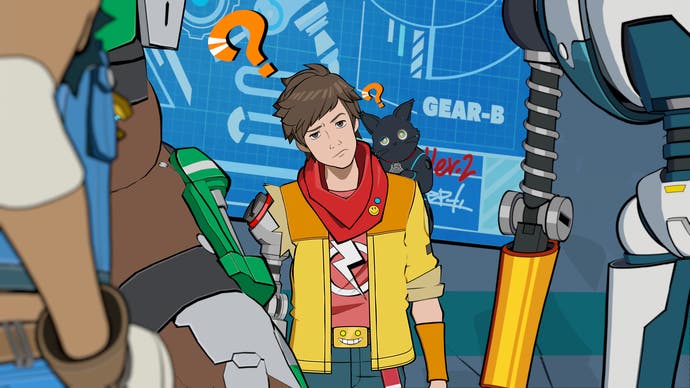
Those licensed tracks are all taken from the 00s; together with the sublime half tone visuals, the whole experience was, for me, drenched in nostalgia. Bittersweet, yearning rock melodies accompany high energy action, cringey dialogue, and a trite sense of cool, delivered through comic book graphics so vibrant and detailed you can practically smell the ink drying. More than anything, Hi-Fi Rush reminds me of the GameCube's Viewtiful Joe - a game that Tango head Shinji Mikami exec produced - for its similar cheekiness and (at the time) dazzling aesthetic. Others might point to the rhythmic combat P.N.03, which Mikami directed.
I was slightly less enthused by the plot, for its reliance on a few clichés. It's a satire of corporations, with protagonist and wannabe rockstar Chai overthrowing the maniacal leaders of an evil tech giant struggling with budgets, creative research, faulty coffee machines, and crunch culture (side eye to camera). Chai is a bubbly, audacious young guy with a robotic arm, a guitar made from scrap metal, and a music player fused into his chest: a likeable himbo but his schtick does become a little tiresome towards the end. His newfound pals are a stereotypical but plucky bunch: techy rebel Peppermint, the gentle giant Macaron, and of course the adorable robot cat 808.
Yet that silly plot isn't meant to be taken seriously, full as it is with cheesy dialogue and slapstick comedy. It's there to set up the next level of mayhem, with each level throwing in jump pads and magnetic rails and light puzzles using companion abilities. It's never less than thrilling, but it's also sincere and unapologetically video gamey.
That's absolutely a compliment. Hi-Fi Rush may have the clean visuals and power of the current generation, but it feels refreshingly retro in comparison to its modern peers. That's in part down to its aesthetic, and its use of music from a similar era. But also it's there in the concise level-based structure, its singular focus on rhythm, and fixation on - above all - simply having fun and looking cool doing it.
Hi-Fi Rush is unashamed to be loud and brash and playful, and it's confident in its execution. On the surface it might seem frivolous but there's a deep battle system here that rewards combo memory and, of course, rhythm. It's upbeat, wide-eyed and unpretentious, but that's all part of its inescapable charm, a game that appeased my inner teen and rewarded musicality in equal measure. I had a blast.
